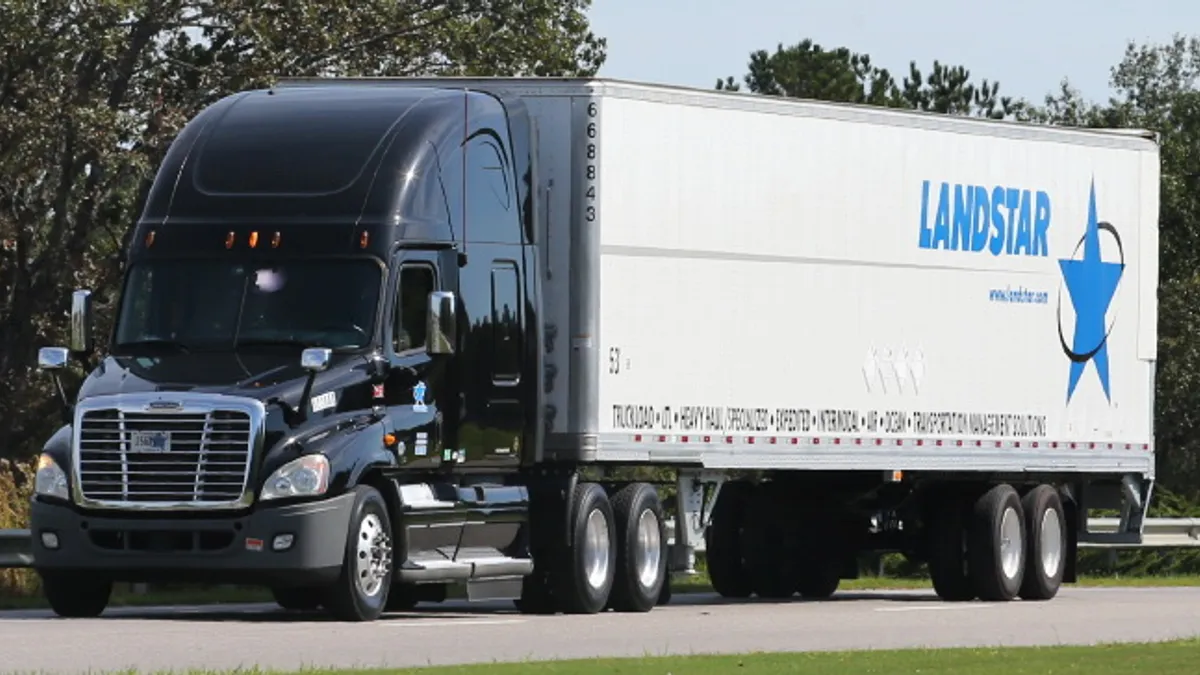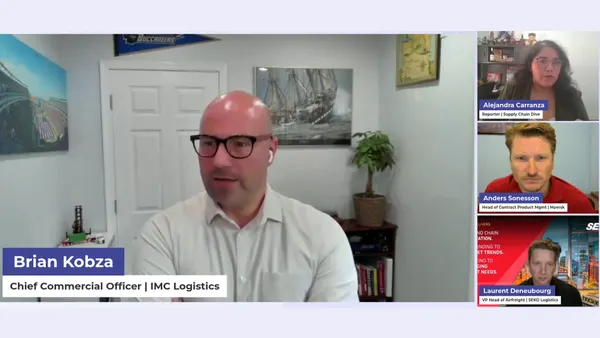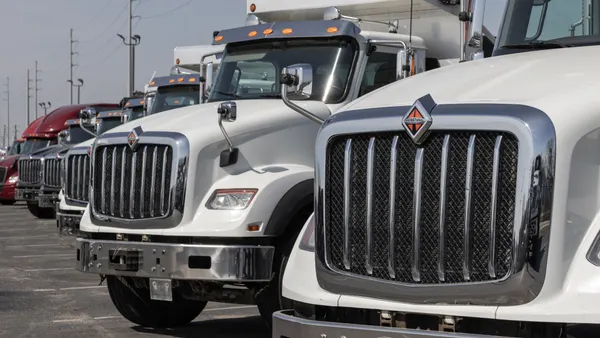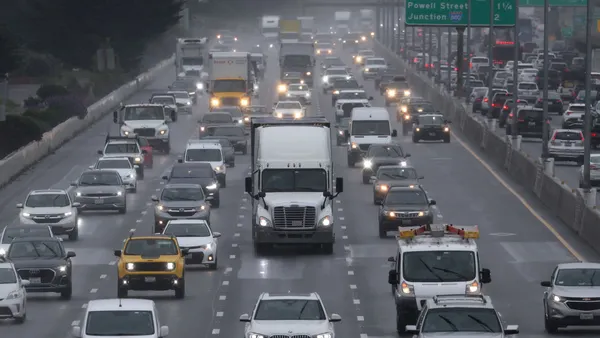Dive Brief:
- As predicted by company officials, the COVID-19 pandemic sliced into Landstar's Q2 performance, with automotive revenue taking a particular hit. Truckload also got hit, with 60,000 fewer loads in Q2 than a year before. Landstar reported profits were cut by more than half by the pandemic, dropping 58.7% from $61.1 million in Q2 2019 to $24.3 million in Q2 2020. Revenue fell 21% in Q2, the company reported in a Wednesday night earnings release.
- As the pandemic began to take hold in the United States, Landstar's loads took a steep dive, falling 16% in Q2 from the same period in 2019. Revenue per load fell 7% in the same quarter from Q2 2019. Landstar CEO Jim Gattoni told analysts during a Thursday morning earnings call that the company saw an upturn in pricing in June. That assessment meshes with the American Trucking Associations' tonnage report, which found for-hire tonnage went up 8.1% in June.
- Landstar restored its guidance, but only for Q3. Gattoni said he expects Q3 revenue to be in a range of $885 million to $935 million. And he said earnings per share will be in a range of $1.11 to $1.17 for Q3 2020.
Dive Insight:
Gattoni warned investors in April that pandemic effects on Q1 results were limited because the full impact of shutdowns had yet to arrive. Still, he noted the speed of the decreasing industrial business just after Q1 ended were like "nothing experienced in the history of the company." So, the Q2 results were expected to cut into revenue and profits.
Landstar was hit by the pandemic's economic thrust in Q2, and it was also hit by insurance costs, an industry-wide problem that has put pressure on margins for big and small carriers.
"We did not anticipate insurance premiums would increase in May by ... $1.1 million per month," said Gattoni. "Recent annual premium increases to insure ... trucking companies have exceeded 200% in some cases."
The company also incurred expenses to keep its owner-operators well paid during the pandemic. A portion of the company's drivers are owner-operators (known by the company as business capacity owners, or BCOs).
Many BCOs faced long trips to find freight during the pandemic, possibly incurring expenses for empty miles, Gattoni said. Landstar implemented a supplemental bonus program in Q2, during some of the worst economic days of the pandemic, with many industries shut down. Landstar paid the BCOs $50 per load, and $50 to the agent dispatching the driver. That came to $12.6 million for April and May.
Landstar and its BCOs still took a hit in April. Gattoni said Landstar loads in the second week of April were 27% below the comparable week in April 2019. That low was the trough of the pandemic's economic effect for Q2. By June, loads carried were down 9% compared to June 2019, Gattoni said.
Consumer durables as a percentage of Landstar's business remained stable, at 24.3% of Q2 revenue, a bit down from 24.6% in Q2 2019. Automotive dropped from 7.2% of revenue in Q2 2019 to 4.3% of revenue in Q2.












